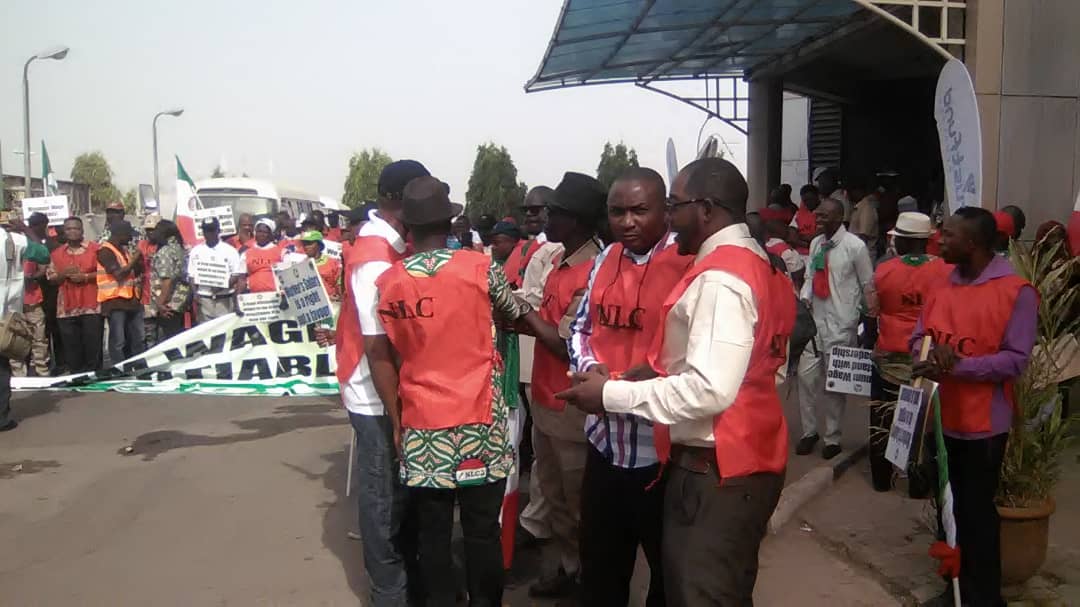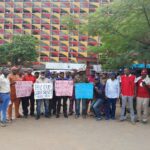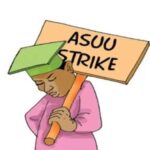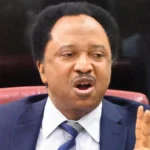The Nigerian Labor Congress seems to be slow in protecting Nigerian workers’ and pensioners’ interests.
On many occasions, the NLC has showed that it has become less active than it used to be in the past.
It happened in many cases where the union made promises for Nigerian workers only to end up disappointing them.
I could remember, during the reign of PDP, NLC strike was very common; the NLC leadership was very vibrant and committed to its responsibilities of protecting the interest of Nigerian workers and pensioners.
Unlike before, so much water has passed under the bridge but nothing was done to save it for the dry season. In the past six years, NLC has performed below expectations of Nigerian workers and at many times, stand as mediator between government and its workers to settle strike in the room.
In this time of inflation and economic hardship; the NLC only barks when its people are touched but afraid to bite.
Some of the aims and objectives of the Nigerian Labor Congress include:
‘To promote, defend and advance the economic, political and social rights and wellbeing of Nigerian workers and pensioners;
“To continually enhance the quality of life and improve the income and other working conditions of workers;
“To promote and sustain the unity of Nigerian Trade Unions, ensure total unionization of all workers irrespective of their creed, state of origin, gender and political beliefs;
“To work for the industrialization and prosperity of the Nigerian nation and ensure protection of jobs, full employment and a humane working environment;
“To establish relationship and cooperation with Labour Movements the world over; and in particular the African region, and play cardinal roles in the Organisation of African Trade Union Unity (OATUU), and Organization of Trade Unions in West Africa (OTUWA);
“To print and publish literature for the purpose of enhancing and achieving the aims and objectives of Congress and its affiliates.
But, looking at the above aims of the labor union, one will ask what happened to the 20,000 Kaduna state primary school teachers that were sacked from the civil service payroll? Though, the state chapter of the NLC and the national body joined forces to give remedy to the retrenched workers but I must tell NLC that the ejected workers are still in the woods and another set of workers have just been sacked again.
Till date, there are 16 states that are yet to commence the payment of the new minimum wage; states like Enugu, Gombe, Imo, Kogi, Kwara, Nasarawa, Ogun face huge remittance on deductions, while Oyo, Plateau, Rivers, Taraba, Kano, and Zamfara are on huge remittance of deductions.
On the other hand, Benue, Cross River and Ekiti have only implemented for levels one to six with backlogs of arrears on promotion.
Even though, the Nigerian Financial Intelligence Unit ( NFIU ) had barred governors from interfering with statutory allocation accounts of their local government but nothing has changed in this regard.
States governors have continued to tap and empty the treasuries of local government and making them idle and stranded financially. The NLC has a key role to play in this law to protects its workers.
In 2015, 23 Nigerian states owed local government workers’ salaries of up to 14 months; the states were given bail-out by President Muhammadu Buhari but many of the states diverted the Paris Loan Refund money given to them on white elephnat projects and up to date, some of the staff are still the victims of that misappropriation.
Pump price has been increased three times in Nigeria since 2015 and NLC has been planning protest against the pump price up till date.
On May 12, 2016, the Nigerian government increased the fuel pump price from N86 and N86.50k to N145 per litre and it went along despite the rage of NLC.
In 2020 another increment in the pump price was made from N148 to N161 per litre and NLC as usual promised to find ways to reduce the hike to a minimum level but it also went ahead like the first increment.
And another increment might still be coming any moment from now.
The NLC has to lock horns with the authorities to stop the increment because the economy is harsh and Nigerians cannot bear the burden.
Auwal Ahmed Ibrahim Goronyo writes from Kaduna

 Join Daily Trust WhatsApp Community For Quick Access To News and Happenings Around You.
Join Daily Trust WhatsApp Community For Quick Access To News and Happenings Around You.


